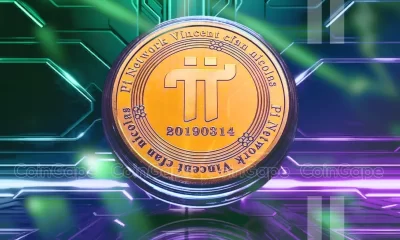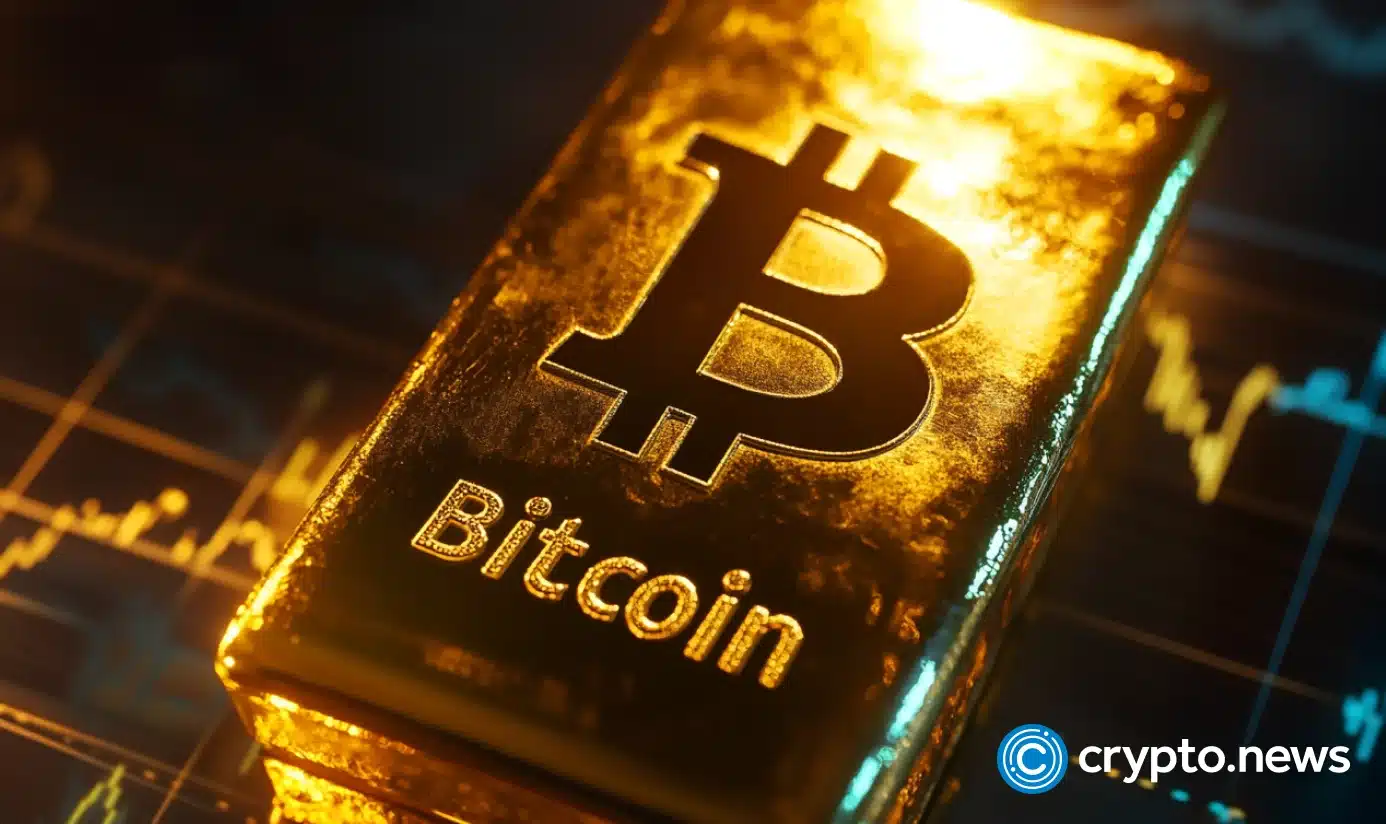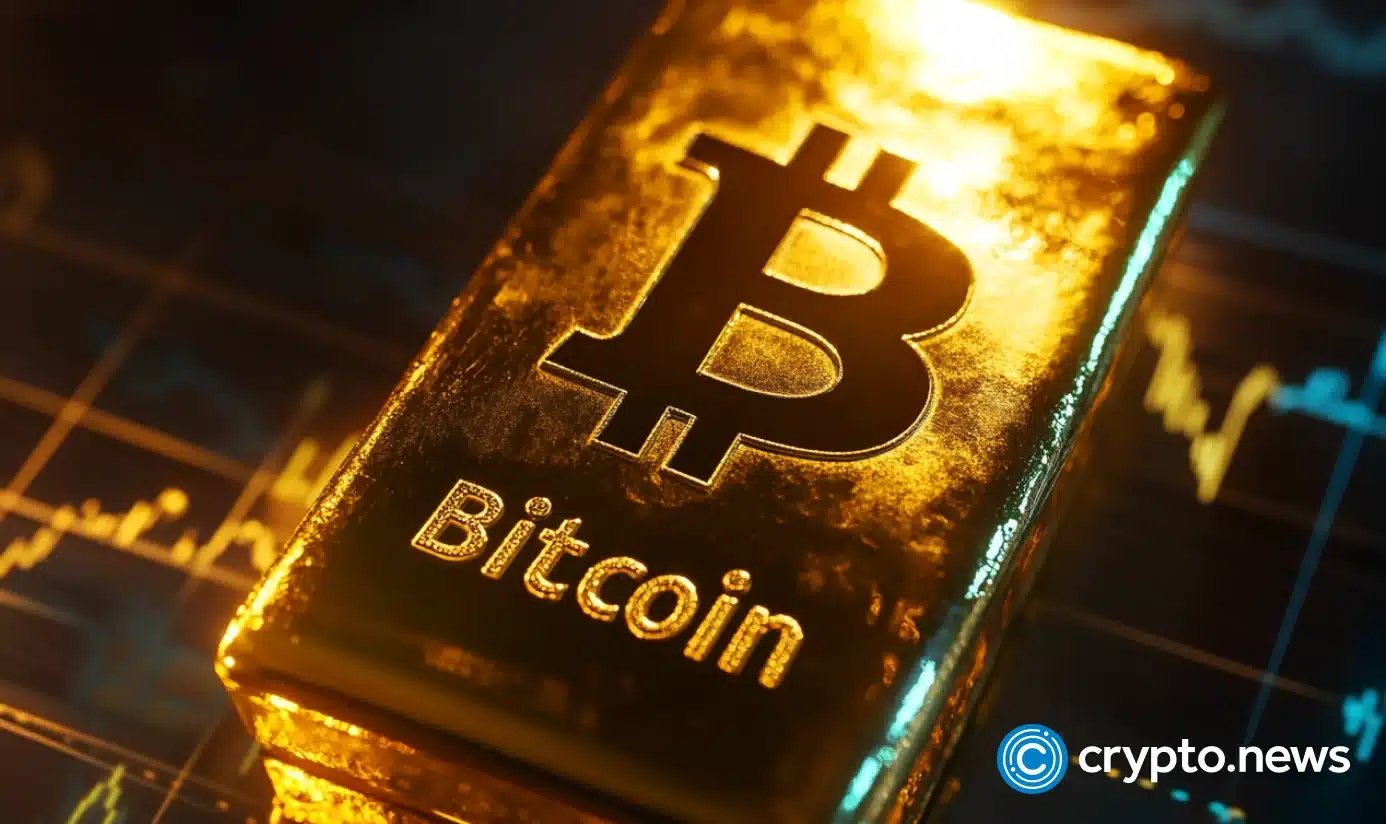Adoption
The promises and pitfalls of decentralized exchanges
Published
5 months agoon
By
admin
Disclosure: The views and opinions expressed here belong solely to the author and do not represent the views and opinions of crypto.news’ editorial.
Historically, centralized exchanges like Binance or Coinbase have battled over the title of the most popular crypto trading platforms. These exchanges influenced the landscape of digital asset trading, attracting both newcomers and seasoned investors. However, reliance on CEXs has not come without drawbacks.
The risks of hacking, operational failures, misuse of funds, and regulatory crackdowns have prompted traders to reassess their options and explore alternatives that offer greater security and autonomy. This is part of the appeal that leads investors to decentralized finance.
Unlike its centralized counterparts, a decentralized exchange allows users to trade directly from their wallets, giving them complete control over their private keys and funds at all times.
It may seem like ancient history, but let’s revisit the infamous fall of FTX. As a CEX, FTX was one of the most prominent centralized platforms in the industry, but its fall from grace was the final straw that broke the camel’s back. After that incident, some traders were convinced that CEXs were far too risky, leading them to explore the advantages of other platform types.
DEXs mitigate the risk of hacking because they don’t hold onto user funds. Instead, transactions occur between the user through smart contracts, reducing the threat of cyberattacks. By eliminating the need for centralized intermediaries,
DEXs significantly reduce the risks associated with hacks, fraud, and custodial failures, allowing users to trade directly without compromising on ownership or security. This model empowers users with greater asset control while fostering a more secure trading environment. And traders are starting to take note.
The DEX to CEX spot trade volume ratio is projected to reach a new record of 13.76 percent in July. This ratio reflects the proportion of trading activity occurring on decentralized platforms compared to centralized ones.

Improved liquidity and enhanced user experience are just a couple of factors that have prompted crypto traders to start investing their money in a decentralized manner, embracing the truly autonomous and transparent nature of cryptocurrency. However, DEX platforms have their own shortcomings to sort out.
With hundreds of DEXs on the market, traders may face challenges like inconsistent liquidity levels, varying transaction fees, and complex user interfaces deterring new users from exploring the emerging ecosystem. Consequently, some decentralized platforms have set out to tackle these weaknesses, such as Astrovault, an automated market maker, aiming to generate revenue directly from its liquidity pools. Unlike traditional DEX platforms, Astrovault employs a new operational approach, reducing its reliance on external liquidity sources and allowing for a more sustainable and resilient model with which users can interact.
Another DEX eschewing the expectations of what a decentralized platform can be used for is QuickSwap, which has grown to become the top asset exchange on Polygon. What is the key differentiator here? QuickSwap hones in on practicality, giving users an incentive to use it beyond trying to earn a yield. By offering services like bill payments via crypto or fiat purchasing capabilities, it pushes the idea of what a DEX is capable of providing its user base while encouraging continuous usage.
While the transition from centralized platforms to decentralized ones won’t happen overnight, recent advancements in the industry underscore the increasing momentum toward this shift. As technologies evolve, they pave the way for more user-centric and transparent financial systems. This progress in trading not only enhances security but also empowers users to take greater control of their assets.
Source link
You may like


Metaplanet makes largest Bitcoin bet, acquires nearly 620 BTC


Tron’s Justin Sun Offloads 50% ETH Holdings, Ethereum Price Crash Imminent?


Investors bet on this $0.0013 token destined to leave Cardano and Shiba Inu behind


End of Altcoin Season? Glassnode Co-Founders Warn Alts in Danger of Lagging Behind After Last Week’s Correction


Can Pi Network Price Triple Before 2024 Ends?


XRP’s $5, $10 goals are trending, but this altcoin with 7,400% potential takes the spotlight
Adoption
Ohio introduces second Bitcoin reserve bill
Published
3 days agoon
December 19, 2024By
admin

The State of Ohio has introduced a second Bitcoin reserve bill as crypto legislation gains momentum across the U.S. ahead of Donald Trump’s inauguration.
Ohio House GOP Majority Whip Steve Demetriou proposed legislation to allow the state to manage a strategic Bitcoin (BTC) reserve, Satoshi Act Fund founder Dennis Porter shared on Dec. 19 during an X Spaces event.
Demetriou’s bill follows a similar proposal from Representative Derek Merrin, which would also position Ohio as a Bitcoin reserve holder. Speaking on X Spaces, Demetriou explained that his legislation would enable Ohio to allocate up to 10% of its state-controlled funds toward a BTC stockpile.
“Bitcoin can help tap into Ohio’s existing energy reserves,” Demetriou added. Ohio is famed for having massive natural gas reserves and a competitive energy grid.
The Ohio GOP Majority Whip provided no specific timeline for the bill’s passage but expressed hope that House bureaucracy would not delay progress.
BREAKING: Ohio introduces a 2nd bill to create a Strategic Bitcoin Reserve. This will be the lawmaker that passes it into law.
— Dennis Porter (@Dennis_Porter_) December 19, 2024
American legislative conversations have increasingly focused on BTC-related proposals following President-elect Donald Trump’s victory in the recent election.
Earlier, Porter said that the Bitcoin renaissance was spotted amassing momentum in over 12 states and counting. Texas, Ohio, and Pennsylvania were a few states that weighed BTC reserve laws.
In Washington, Senator Cynthia Lummis has advocated for federal BTC reserve policies. Responding to Federal Reserve Chair Jerome Powell, Lummis argued that the Senate should authorize the central bank to hold Bitcoin. Powell previously clarified that the Fed cannot own BTC under current laws.
Source link
Adoption
Wyoming seeks developers for state-backed stablecoin
Published
2 weeks agoon
December 9, 2024By
admin

The State of Wyoming is hiring blockchain developers to support the creation of its government-issued stablecoin currency.
The Wyoming Stable Token Commission has issued public Requests for Qualification to attract talent for its stablecoin initiative, known as “Project WYST.”
Stablecoins are digital currencies that trade with 1:1 dollar parity, allowing users to deploy U.S. dollars in blockchain markets and decentralized finance venues. The sector has over $200 billion in circulation, and stabelcoins feature in most cryptocurrency transactions, according to the U.S. Treasury Department.
Applicants have until Dec. 12 to submit their proposals for roles that include token development, support, listing, on-chain analysis, reserve management, financial auditing, and ecosystem intelligence.
WYST details remain limited, but Commission discussions indicate it may launch on Ethereum or Solana networks.
ICYMI: our public Request For Qualification period is underway.
7 RFQs are now open to support the development of the world’s first state-issued and fiat-backed stabletoken.
Submission deadline is Dec 12 2024 @ 5PM MT.
Apply now at the RFQ Info Center: https://t.co/u5OKK0QHWm
— wyostable (@wyostable) December 4, 2024
The Wyoming Stable Token Act, passed in 2023, authorized the state to issue stablecoins. According to the WyoStable Commission website, WYST is designed to represent and be redeemable for one U.S. dollar held in trust by the state. Tokens will only be issued in exchange for U.S. dollars.
WYST is a proposed virtual currency representative of and redeemable for one (1) United States dollar held in trust by the state of Wyoming as provided by W.S. 40‑31‑106. Stable tokens shall only be issued in exchange for United States dollars.
WyoStable Commission website
Wyoming has positioned itself as a web3 leader with U.S. borders. In March, the state officially recognized decentralized autonomous organizations as legal entities.
The landmark crypto bill reaffirmed sovereign acceptance for DAOs amid regulatory uncertainty, predominantly from the Securities and Exchange Commission. Kraken also launched its licensed custody solution in the state in March.
Back in February 2023, local lawmakers passed a bill to protect crypto self-custody, protecting the right to hold Bitcoin (BTC) and other digital assets. Wyoming Senator Cynthia Lummis was at the forefront of Federal Congressional efforts to establish a national Bitcoin reserve. Thousands penned letters supporting her BITCOIN BILL, per crypto.news reporting.
Other states were following suit and mulled Bitcoin reserve legislation as the U.S. voted its first pro-BTC president in Republican Donald Trump.
Source link
Adoption
Bitcoin advocate hints at ‘strategic reserve’ laws in 10 US states
Published
3 weeks agoon
December 3, 2024By
admin

Satoshi Act Fund founder Dennis Porter announced that several U.S. states are preparing to propose legislation for sovereign Bitcoin reserves.
In an attempt to front-run President Donald Trump’s Bitcoin (BTC) promise, Porter has lobbied local policymakers to introduce legislation for BTC stockpiles across 10 state jurisdictions. Porter disclosed the development via an X thread, highlighting efforts from his Satoshi Act Fund organization toward passing Bitcoin-focused laws.
I can now officially confirm and announce that 10 states will be introducing ‘Strategic Bitcoin Reserves’ legislation here in the great United STATES of America. We are going to win with Bitcoin. We will lead the world. No one will come close. The word will follow our lead.
Dennis Porter, Satoshi Act Fund founder and CEO
The public BTC supported also announced a joint discussion with Wyoming Senator Cynthia Lummis regarding her BITCOIN ACT, suggesting that Porter has engaged federal lawmakers to position the U.S. as a Bitcoin leader.
Lummis’s proposal would transfer 207,000 BTC seized by authorities to the Treasury Department. The Senator also pushed to convert U.S. gold certificates to finance BTC purchases and accumulate one million coins over five years.
“The race is on. Let the game theory begin,” Porter tweeted, referring to President Trump’s plan to establish a government BTC stockpile from America’s existing $19 billion horde.
I am convinced I will pass Strategic Bitcoin Reserve legislation at the state level before @realDonaldTrump. The only way he wins is if he does an executive order the very first week he is in office.
The race is on.
Let the game theory begin.
— Dennis Porter (@Dennis_Porter_) December 3, 2024
Nations, states, and governments are rushing to grab portions of BTC’s 21 million fixed supply following Trump’s victory at the presidential polls. Within the U.S., Pennsylvania already passed a bill legalizing BTC payments and crypto self-custody. The state also introduced a bill paving the way for its own BTC reserve in November.
On the international front, Brazil’s Senate considered pitching a national BTC reserve to President Luiz Inácio Lula da SilvaCongressman Eros Biondini submitted the idea to Brazil’s Chamber of Deputies as crypto.news reported.
Source link

Metaplanet makes largest Bitcoin bet, acquires nearly 620 BTC

Tron’s Justin Sun Offloads 50% ETH Holdings, Ethereum Price Crash Imminent?

Investors bet on this $0.0013 token destined to leave Cardano and Shiba Inu behind

End of Altcoin Season? Glassnode Co-Founders Warn Alts in Danger of Lagging Behind After Last Week’s Correction

Can Pi Network Price Triple Before 2024 Ends?

XRP’s $5, $10 goals are trending, but this altcoin with 7,400% potential takes the spotlight

CryptoQuant Hails Binance Reserve Amid High Leverage Trading

Trump Picks Bo Hines to Lead Presidential Crypto Council

The introduction of Hydra could see Cardano surpass Ethereum with 100,000 TPS

Top 4 Altcoins to Hold Before 2025 Alt Season

DeFi Protocol Usual’s Surge Catapults Hashnote’s Tokenized Treasury Over BlackRock’s BUIDL

DOGE & SHIB holders embrace Lightchain AI for its growth and unique sports-crypto vision

Will Shiba Inu Price Hold Critical Support Amid Market Volatility?

Chainlink price double bottoms as whales accumulate

Ethereum Accumulation Address Holdings Surge By 60% In Five Months – Details
182267361726451435

Why Did Trump Change His Mind on Bitcoin?

Top Crypto News Headlines of The Week

New U.S. president must bring clarity to crypto regulation, analyst says

Will XRP Price Defend $0.5 Support If SEC Decides to Appeal?

Bitcoin Open-Source Development Takes The Stage In Nashville

Ethereum, Solana touch key levels as Bitcoin spikes

Bitcoin 20% Surge In 3 Weeks Teases Record-Breaking Potential

Ethereum Crash A Buying Opportunity? This Whale Thinks So

Shiba Inu Price Slips 4% as 3500% Burn Rate Surge Fails to Halt Correction

Washington financial watchdog warns of scam involving fake crypto ‘professors’

‘Hamster Kombat’ Airdrop Delayed as Pre-Market Trading for Telegram Game Expands

Citigroup Executive Steps Down To Explore Crypto
Mostbet Güvenilir Mi – Casino Bonus 2024

NoOnes Bitcoin Philosophy: Everyone Eats
Trending

 3 months ago
3 months ago182267361726451435

 Donald Trump5 months ago
Donald Trump5 months agoWhy Did Trump Change His Mind on Bitcoin?

 24/7 Cryptocurrency News4 months ago
24/7 Cryptocurrency News4 months agoTop Crypto News Headlines of The Week

 News4 months ago
News4 months agoNew U.S. president must bring clarity to crypto regulation, analyst says

 Price analysis4 months ago
Price analysis4 months agoWill XRP Price Defend $0.5 Support If SEC Decides to Appeal?

 Opinion5 months ago
Opinion5 months agoBitcoin Open-Source Development Takes The Stage In Nashville

 Bitcoin5 months ago
Bitcoin5 months agoEthereum, Solana touch key levels as Bitcoin spikes

 Bitcoin5 months ago
Bitcoin5 months agoBitcoin 20% Surge In 3 Weeks Teases Record-Breaking Potential


